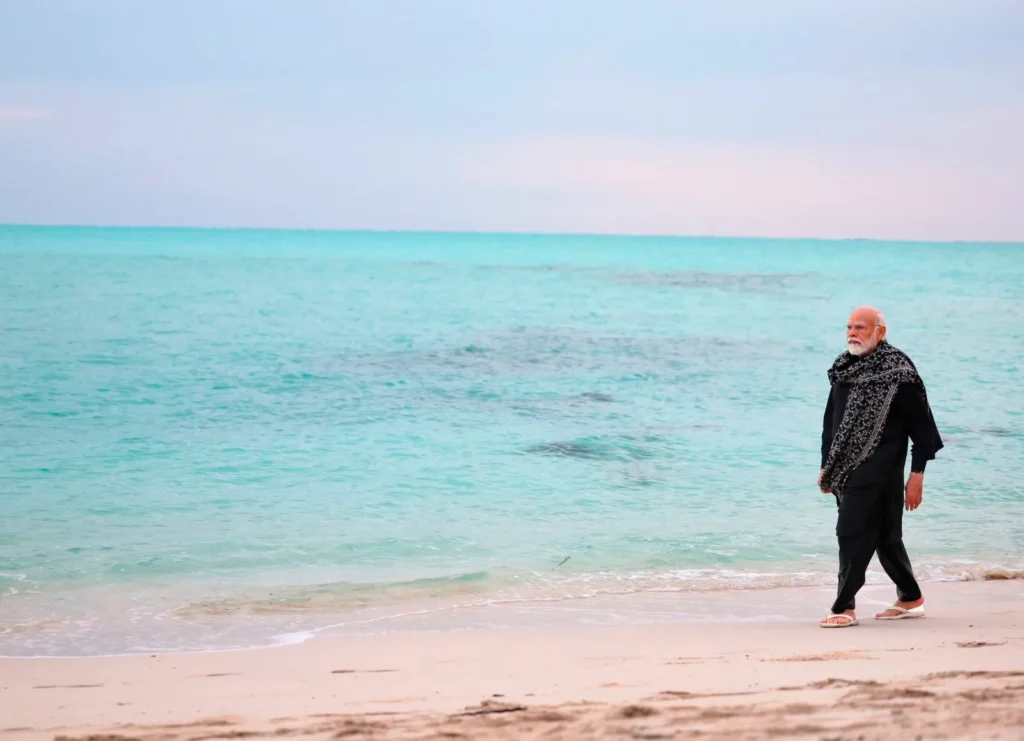Diplomatic tensions between India and the Maldives flared up recently due to a social media controversy sparked by Indian Prime Minister Narendra Modi’s beach photos in the Lakshadweep archipelago. While Modi’s intent was to promote tourism in the Indian islands, the Maldives viewed it as a potential threat to its own tourism industry. The incident has brought to light the delicate nature of the relationship between the two nations, both vying for influence in the strategically located island nation.
Modi’s social media posts showcasing the pristine beauty of Lakshadweep led to a backlash from some Maldivian officials who labeled him a “clown,” a “terrorist,” and a “puppet of Israel.” In response, many Indians, including government officials, Bollywood stars, and cricketers, urged citizens to explore local holiday destinations, promoting the hashtag #BoycottMaldives. An Indian travel portal, EaseMyTrip, even suspended bookings for flights to the Maldives, citing solidarity with the nation.
The controversy brought attention to the economic stakes involved, as Indian tourists constitute a significant portion of the Maldives’ tourism market, with nearly 11% of visitors being Indian nationals. The Maldives, while pursuing economic ties with India, is also navigating relations with China, leading to a delicate balancing act.
The Maldives, a nation heavily reliant on tourism, cannot afford to alienate India, its largest group of tourists. However, since the election of President Mohamed Muizzu, who campaigned on an “India Out” platform, relations with New Delhi have faced challenges. Muizzu’s call to remove Indian military personnel stationed in the Maldives raised concerns about the sovereignty of the island nation.
The recent controversy unfolded against the backdrop of Modi’s visit to Lakshadweep, which, in addition to promoting tourism, aimed to emphasize India’s strategic presence in the region. The Maldives, historically aligning itself with either India or China, is facing pressure to manage its diplomatic ties carefully.
While the Maldives swiftly acted to suspend officials who made derogatory comments against India, the incident highlighted the complex nature of diplomatic relations in the region. Muizzu’s visit to China shortly after the controversy raised eyebrows, signaling a potential shift in policy, although experts suggest that the Maldives remains cautious about not escalating tensions further.
Former Maldivian Foreign Minister Ahmed Shaheed believes that the controversy over Indian troops stationed in the Maldives may have contributed to the heightened tensions. He emphasized the economic ramifications for the Maldives in having a spat with India, calling it “economic suicide.”
As the Maldives attempts to navigate its ties with both India and China, the incident underscores the high stakes involved and the challenges of managing diplomatic relations in an era where social media can magnify even the smallest disagreements. The delicate balancing act continues, and the Maldives must tread carefully to maintain its economic interests and diplomatic ties with both regional powers.
